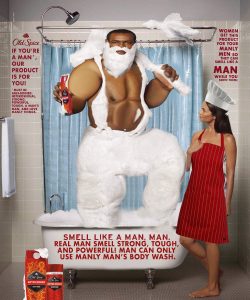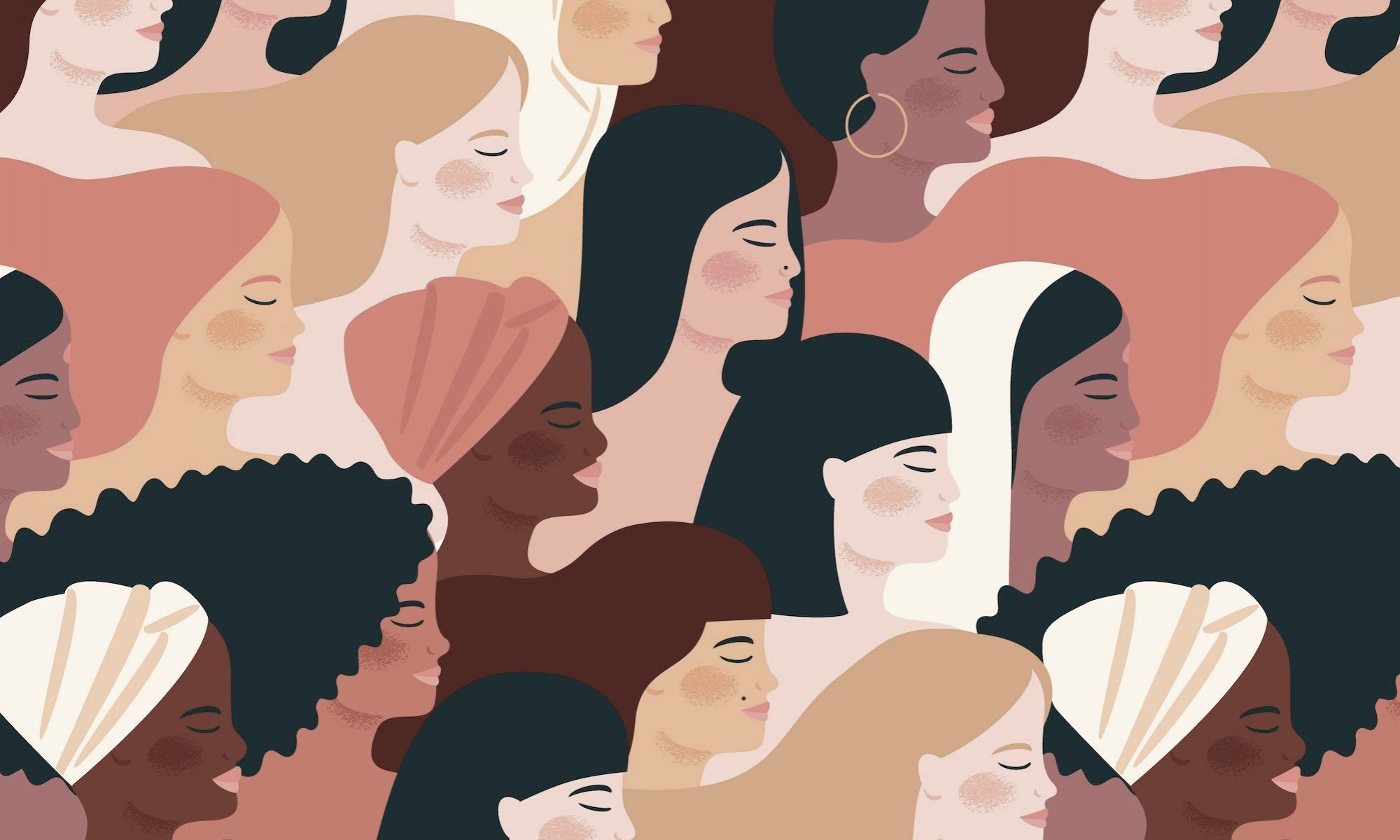
Broadly, the Old Spice advertisement is harmful because it puts forth the idea that a product as innocuous and universal as body wash should be gendered. By making a body wash that is specifically for men, the advertisement essentially reinforces a conception of gender that is binary and as simple as male/female or man/woman. In addition to promoting a binary that does not exist in everyday life, as evidenced by trans and intersex people among others, gendered products often advertise a certain definition of both men and women that only a few people can connect to. In this specific Old Spice advertisement, the definition of “man” advanced is one who is muscular, strong, able-bodied, and heterosexual. Anyone who does not fit this extremely narrow definition is essentially regarded as someone who is not a “man.” The athlete in this advertisement, Isaiah Mustafa, is also black—the advertisement deliberately sexualizes his physical features, perpetuating the stereotype of the “hyper-sexualized black man” (NPR, 2007). Moreover, in including a woman to assert the man’s sexuality, the advertisement promotes an ideal of masculinity that is hegemonic and views women as subordinate to them: the women in the advertisement is reduced to a thing that is to be desired and achieved through using the product. The woman included in the advertisement also reflects a particular definition of “woman” that is narrow: thin, young, able-bodied, and white. There is no room for representation of other groups, such as people with a disability, non-binary people, or women of colour among many others. Instead, to be “like a man” is to be able-bodied, heterosexual, and masculine. This masculinity is demonstrated through the man’s lumberjack job, his domineering and confident stance, and authoritative position relative to the passive woman, who gazes at the providing man. Ultimately, these depictions assert certain ideals about masculinity and femininity that are used by the advertising company to construct what roles men and women occupy in relation to each other, as well as what the ideal man and woman are.

The gender roles promoted in the Old Spice advertisement are not universal; these ideals of heteronormativity and cisnormativity are disrupted everyday by the LGBTQ community. To subvert the injurious and harmful messages of this advertisement, I used irony and satire to highlight the ridiculous ideals of masculinity and femininity being promoted. To achieve this, I first exaggerated Isaiah Mustafa’s body to look even bigger and more muscular to reinforce his position of authority and dominance, as well as to further emphasize his sexualization. To mock the passive and subordinate view of women being promoted, I added an apron and chef’s hat to the woman in the advertisement to put forth an even more traditional or stereotypical image of a woman. Finally, I added messages to the original text of “smell like a man, man” that excessively and jokingly use the word “man” and other adjectives typically associated with masculinity, such as toughness, power, and strength. In doing so, I hope to illuminate the harmful nature of gendering a product as simple as body wash and asserting that it only for “men” to use, when there is no universal definition of what a “man” should look or even smell like. In my added text, I noted that, according to this advertisement, a “man” must be able-bodied, heterosexual, and “masculine” by embodying traits such as authority and confidence, while engaging in manly activities. Overall, my alterations hope to reveal the harmful ideals that advertisements for gendered products essentially promote: narrow and binary categories of gender that are based on stereotypical views of what these roles entail. Moreover, implicit promotions, such as that of the hyper-sexualized black man may be further imbedded within these messages. The particular definitions advanced in this advertisement are constantly disrupted and problematized everyday by people who do not fit these strict and limiting categories; however, by excluding such groups from its advertisement, Old Spice ultimately marginalizes and problematizes these groups’ existence by making them invisible.
Bibliography
News & Notes. “Sex Stereotypes of African Americans Have Long History.” NPR. First broadcast May 7, 2007. Hosted by Farai Chideya. Performed by Herbert Samuels.
